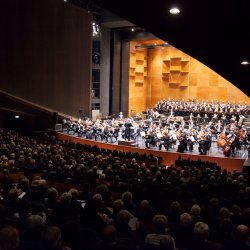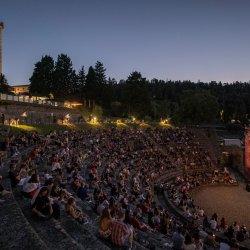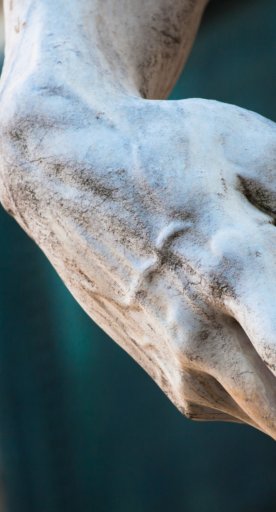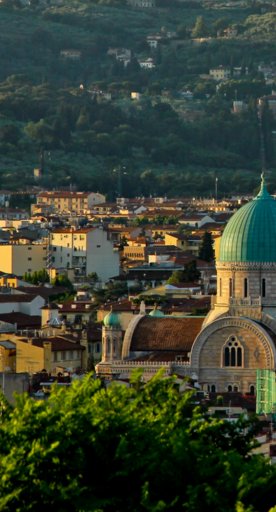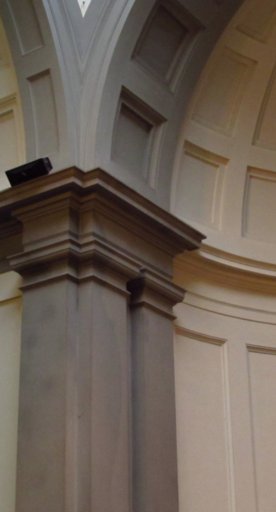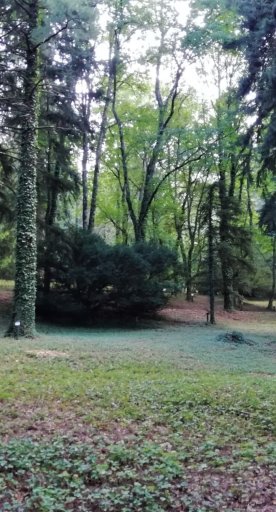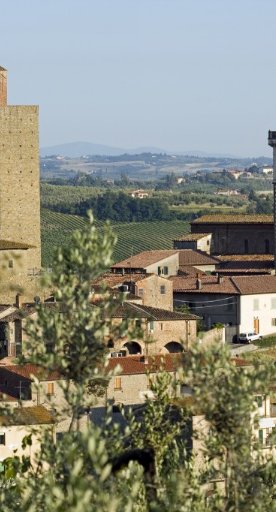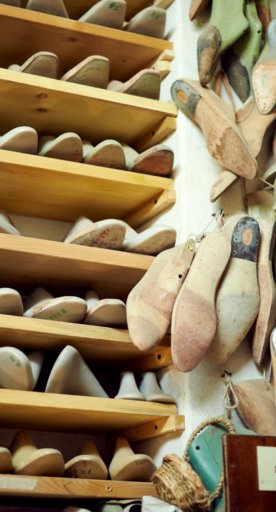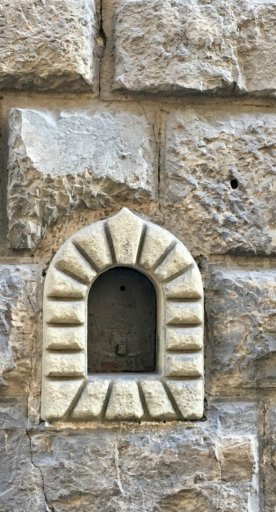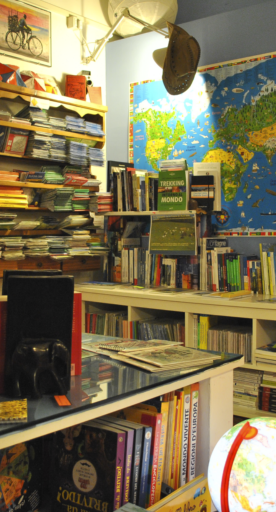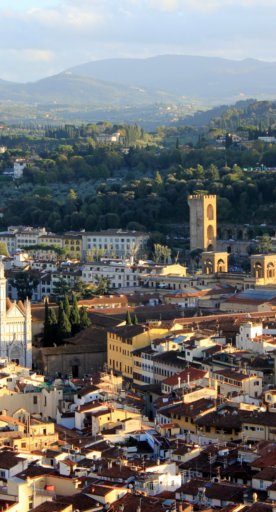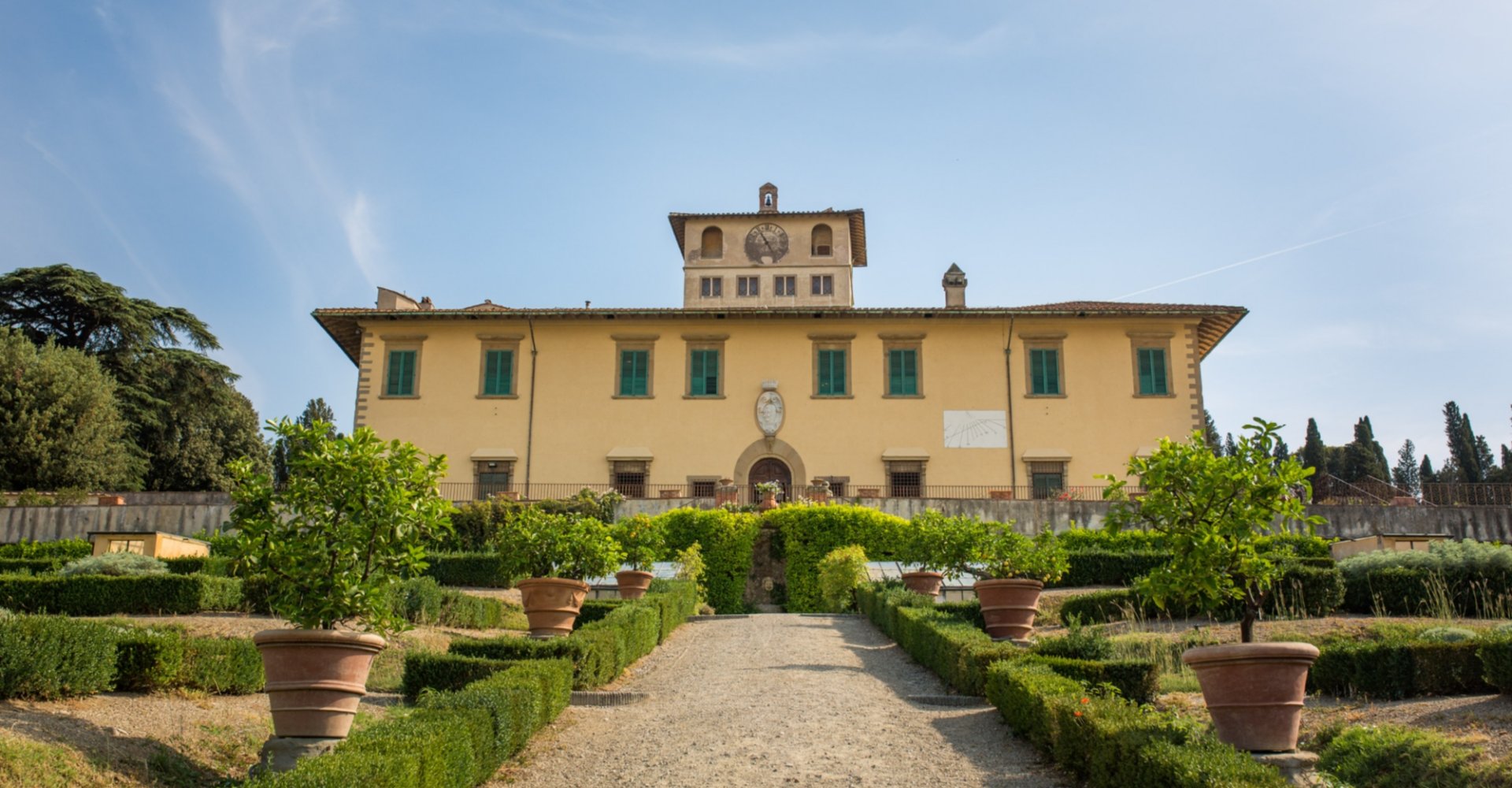

Romantic Florence: the passions of great historical figures
An itinerary to discover the places that were the stage of the greatest love stories
An alternative itinerary to explore Florence and its surroundings, moving in the footsteps of great loves, in the city's most romantic places and those marked by the great passions of the past.
-
1.Buondelmonti's End on Ponte Vecchio
-
2.Dante and Beatrice's first meeting.
-
3.Betrayal in the shadow of the Dome
-
4.The most famous love story of the Renaissance
-
5.About kings, poets and loves
Buondelmonti's End on Ponte Vecchio
Ponte Vecchio is linked to the story of a young Florentine nobleman who lived in the early 1200s, Buondelmonte de' Buondelmonti. Handsome, elegant, and cultured, he was stabbed to death on the bridge while riding his white horse, an extreme punishment for a sin of love: Buondelmonte had fallen in love with a girl from the Amidei family, promising to marry her, but he backed out right in front of the altar, making vague excuses.
Dante and Beatrice's first meeting.
There is a very small church in the center of Florence, called the Church of Dante, which legend has it was the scene of Dante's first meeting with Beatrice, with the poet falling in love at first sight. The church is that of Santa Margherita dei Cerchi, a very old church (dating back to 1032) that houses the tomb of Beatrice Portinari and her nurse Monna Tessa, as well as a painting depicting the famous encounter.
Betrayal in the shadow of the Dome
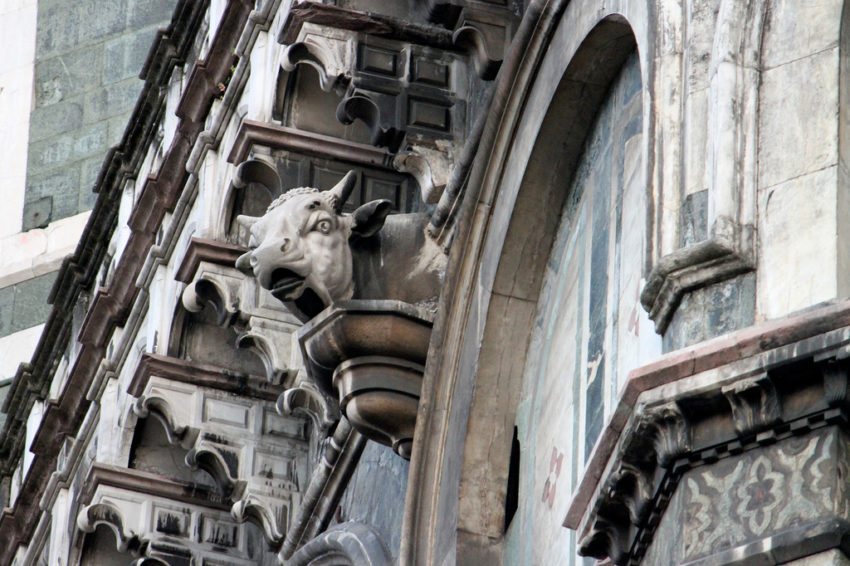
At the time of the construction of Brunelleschi's Dome, in one of the houses overlooking a side of the Dome, the one at Via dei Servi, there lived a pretty young seamstress who, either to seek some light or to better follow the executions of the works or to peek at the men working on the scaffoldings erected for the occasion, often looked out of the balcony. One of the foremen took a fancy to her and, exchanging glances, he soon managed to arrange clandestine meetings in her house when her husband was away on business.
Not content, the gallant foreman thought it best to leave, for future reference, a tangible sign of his feat, no less than on the Cathedral itself, carving a bull's head with a handsome pair of horns facing the house of the beautiful seamstress and her husband.
Romantic stories aside, the presence of the bovine head, which is indeed clearly visible, is to be seen as a sign of gratitude to these animals which, laden with building materials, arrived from Via dei Servi, from where a planking going up as far as the Dome.
The most famous love story of the Renaissance
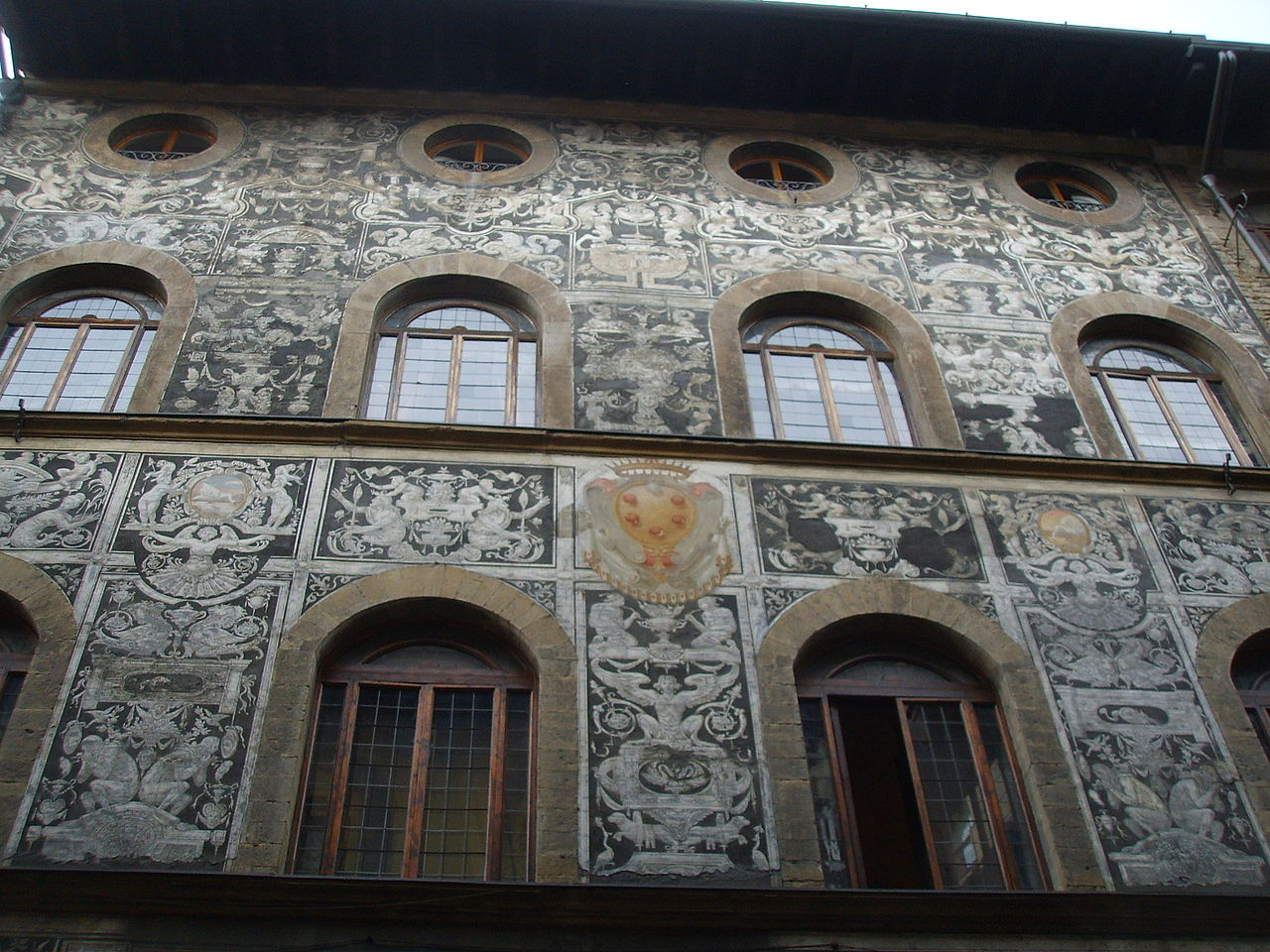
More gripping than a novel is the story between Francesco I dei Medici and Bianca Cappello, the daughter of a Venetian gentleman from an ancient patrician family. Bianca arrived in town in 1563, running away with her Florentine lover Pietro Bonaventuri, whom she married on 12 December of that year. But at a party at Palazzo del Mondragone, located at Via dei Banchi at the corner with Via del Giglio, Bianca met Francesco de' Medici, and it was love at first sight. The stage for the early years of this clandestine love (Francesco was married to Joanna of Austria) was Bianca Cappello's Palace at Via Maggio, built by Bernardo Buontalenti upon the request of the grand duke himself. Francesco and Bianca were married in 1579, after the untimely death of Joanna.
About kings, poets and loves
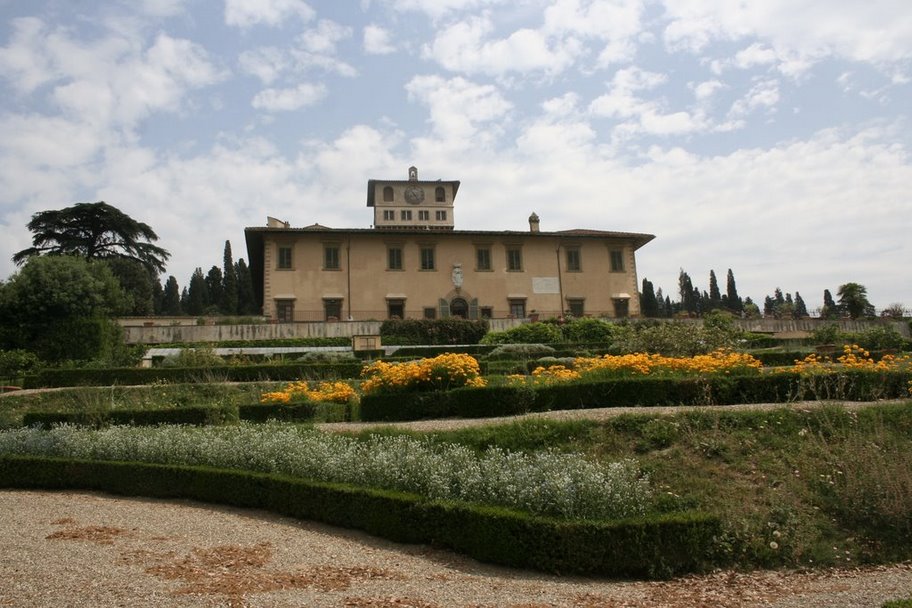
Among the prestigious love stories to which Florence has served as a backdrop is that between the poet Vittorio Alfieri and Luisa Stolberg, Countess of Albany, organizer of a famous and popular literary salon. The spark was apparently ignited by a meeting in 1777 at the Basilica of Santa Croce. The love for Luisa put an end to Alfieri's amorous restlessness, and he would maintain this relationship until his death.
The hill of Bellosguardo, instead, was the stage for the love between Ugo Foscolo and Quirina Mocenni Magiotti. The poet stayed for a few months at Villa Torricella, once located opposite the current Villa dell'Ombrellino and destroyed in the early twentieth century, where he wrote the verses of the poem "Le Grazie" (1813) dedicating them to his beloved Quirina.
It is impossible not to mention Robert and Elisabeth Barret Browning, a famous English couple of poets who moved to Florence to escape her oppressive father. Their amorous passion kept them happily together for fifteen years. Their home, Casa Guidi, in Piazza di San Felice, became at that time a kind of spiritual "Mecca" for the Anglo-American community in Florence. It was not until Elisabeth's death (1861) that Robert returned to England with his son. Elisabeth Barrett Browning is buried at the Cimitero degli Inglesi (English Cemetery) in Piazza Donatello.
The twentieth century was not without its passions either.
During the period in which Florence was the capital, Villa Medicea de La Petraia was the summer residence of King Victor Emmanuel II of Savoy. On the second floor of this splendid villa is the bedroom of "Bella Rosina," the woman who was the king's lover, not even too secretly, and who, upon his wife's death, became his royal consort after being awarded the noble title of "Countess of Mirafiori."
In Settignano, the beautiful hill above Florence, the poet Gabriele D'Annunzio lived between 1989 and 1909 during his relationship with actress Eleonora Duse. Here he wrote "Il Fuoco," a book published in 1900 with the permission of Eleonora Duse herself, in which he described this passionate relationship.
This journey into the Florentine loves of the past ends on the Lungarni in the company of Oscar Wilde, who stayed in Florence on two occasions and in 1881 wrote the poem "By the Arno" inspired by the landscape that opened before his eyes. The text is an invitation to appreciate the beauty that surrounds us, whenever we have the chance to do so.




